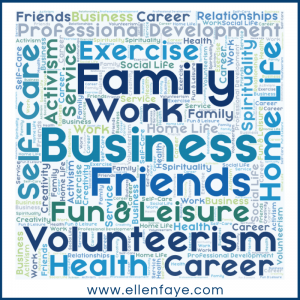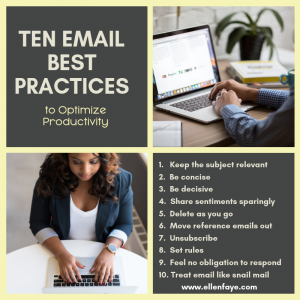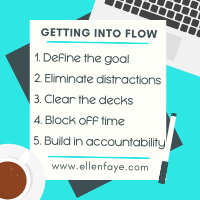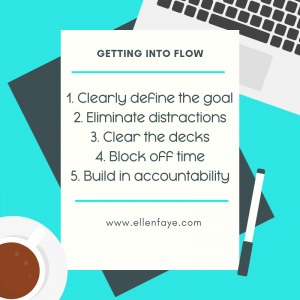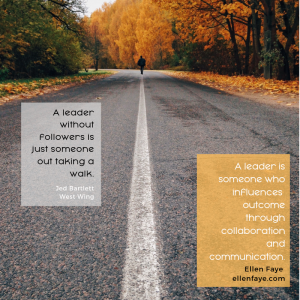12 Jun Success Formula Blog Course Week 2: Clarifying Your UNIQUE Focus
When setting intentions and goals it’s helpful to categorize, or as professional organizers like to say; group like things together. When we see things in categories it’s easier to make choices.
My favorite example of this is black dress shoes. If you put all your black dress shoes together you will likely have about 10 pairs. When you see them all in one place, it is easier to decide which pairs matter most. Only then you can give away the shoes that don’t fit, hurt your feet, or are too worn to wear. Grouping like things together brings clarity to what is most important.
We can apply this concept of grouping to the activities, obligations, and priorities in your life as well. When we “see” them all together it helps us focus on what is most important.
Look back at your definitions of success from last week. Now consider how you are spending your time.
Are you doing the things that support your definition of success?
How can you group your life areas together in a way that respects the uniqueness of what really matters to you? Here are some examples to spark your creative juices. Feel free to use your own words as well. I recommend picking the 4 or 5 “buckets” that reflect the things that support your definition of success:
| Self-Care | Family | Spirituality |
| Friends | Volunteerism | Service |
| Activism | Business Growth | Career |
| Work | Professional Development | Health |
| Personal Growth | Fun & Leisure | Home Environment |
| Creativity | Relationships | Exercise |
Your UNIQUE Focus Areas:
- ___________________________
- ___________________________
- ___________________________
- ___________________________
- ___________________________
CHARACTERISTICS of your Focus Areas
The next step is to identify CHARACTERISTICS of your focus areas, and in turn the actions that support what is important to you. This will help you get clear about your focus and priorities.
Remember, only when you are clear about what you want to FOCUS on can you FOCUS on it.
Here are some examples that can be applied to your non-business self:
- Self-care:
- Go to the gym twice a week
- Make time to talk to four friends at least once a week
- Meditate 20 minutes 4 times a week
- Family:
- Spend at least one hour a week reading, playing games, or actively engaging with my children/grandchildren/nieces/ nephews/etc.
- Have lunch with mom once a week
- Have a date night with my partner two times a month
- Service:
- Volunteer at least 5 hours a week
- Identify one cause to stand behind
- Don’t spread myself too thin
And for work:
- Professional Development:
- Read at least one business book monthly
- Listen to a podcast once a week
- Prepare for certification exam by October
- Business Self-Care
- Leave work by 6pm most days
- Work from home 1 day per week
- Have lunch with one new colleague each week/month
- Business Growth
- Complete XYZ project
- Develop program to improve customer feedback X%
- Improve department profitability X%
What are the characteristics of your unique focus areas?
- ___________________________________
- _______________________________
- _______________________________
- _______________________________
- ___________________________________
- _______________________________
- _______________________________
- _______________________________
- ___________________________________
- _______________________________
- _______________________________
- _______________________________
- ___________________________________
- _______________________________
- _______________________________
- _______________________________
- ___________________________________
- _______________________________
- _______________________________
- _______________________________
Creating Your Very Own Success Formula Blog Course Details – This is the 2nd in a multi-series of posts. Check this post for the big picture. Future posts can be delivered to your inbox by signing up for my blog. And please share this opportunity with your friends and colleagues.




